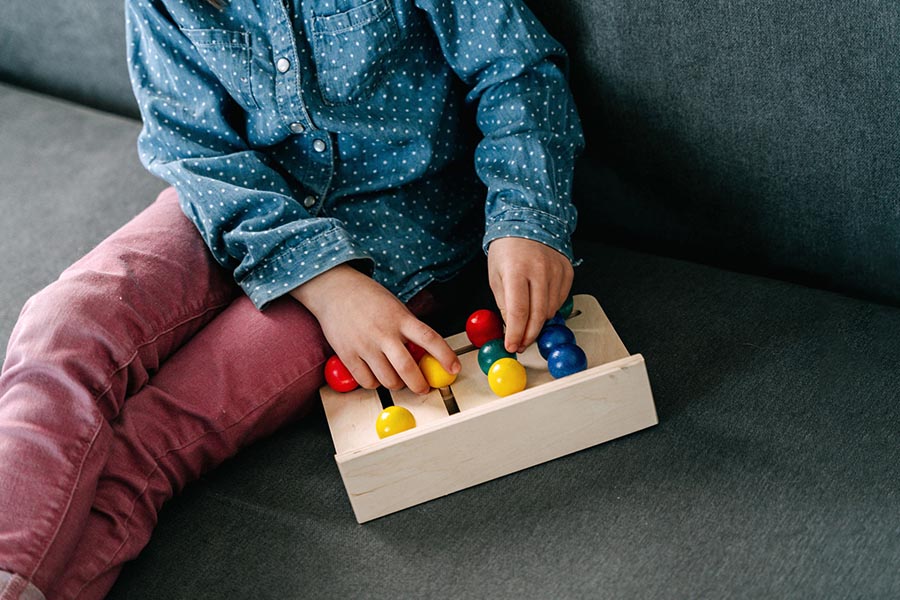Outpatient Therapy

Occupational therapists provide therapy services for adult and pediatric patients through outpatient care or center-based clinics at the Munroe-Meyer Institute and in Omaha, Nebraska.
Provider Referral
Occupational therapy services require a referral from a primary care physician that includes a clear statement of the referral concern.
Initial Evaluation
The initial evaluation will focus on the reason for referral, families' goals and will include one or more of the following:
- Clients and family members are asked to share perspectives about specific activities and tasks that are challenging within the context of daily routines and life roles.
-
Self-care independence will be reviewed as it relates to dressing, hygiene, toileting, grooming and functional mobility.
-
The therapist will assess visual motor and fine motor skills by observing the individual’s manipulation of various objects, tools and dressing fasteners to assess the building blocks of these skills: muscle strength, joint stability and eye-hand coordination. Formal, standardized test instruments are used to provide qualification data when needed and/or requested.
- Food/drink may be used to assess concerns about oral-motor or self-feeding skill development.
- Specific measures of handwriting legibility are used when this is a referral concern.
The Munroe-Meyer Institute's Department of Occupational Therapy team provides services to people with intellectual and developmental disabilities across the lifespan. This includes through adolescence and into adulthood. The skills that are typically addressed with this population include dressing, bathing, toileting, cooking, laundry, money management and basic home management tasks. All plans of care are individualized and can include a variety of skill deficits.
The use of the simulation apartment allows for these skills to be worked on in a functional environment to provide further carryover outside the walls of MMI. The ultimate goal when working with the adolescent and adult population is independence. This looks different for each person, but our team strives to meet this need for each patient.
Individual or Group Treatment
Short-term, intensive, small group or individual treatment opportunities are available to qualifying individuals in the community on a limited basis.
- Intensive treatment sessions in occupational therapy are designed to provide focused and frequent therapy over a shorter period. These sessions can be particularly beneficial for individuals who need more concentrated intervention to achieve their goals more quickly.
Clinic-Based Camps
Multiple camp sessions are offered throughout the year as self-pay or fee for service and are available to qualifying children on a limited basis.

Make an Appointment
Learn more about making an appointment with UNMC's Munroe-Meyer Institute.